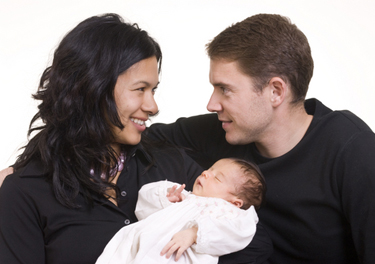 Back to the Obstetrical Care Program
Back to the Obstetrical Care Program
First Trimester
Second Trimester
Third Trimester
Morning Sickness
Braxton-Hicks Contractions
First Trimester
In the first three months of your pregnancy, most women will experience some of these physical changes:
-
Nausea and vomiting (see Morning Sickness)
-
Breast tenderness
-
Fatigue
-
Weight gain
-
Frequent urination
Second Trimester (12-28 weeks)
During the second trimester, your pregnancy will start to show. Many women feel a growing sense of well being during the second trimester. In addition, morning sickness and fatigue improves for many women throughout this time.
In the second trimester, you may expect the following physical changes:
-
Baby: the uterus grows to your navel between 20 and 22 weeks.
-
Breasts: you will have colostrum (pre-milk) in your breasts. Your nipples may begin to get darker and the skin around the nipples will get larger.
-
Heartburn: you may experience changes in the foods your body can digest.
-
Circulation: pressure on the blood vessels in the lower part of your body increases and may cause hemorrhoids, varicose veins and some swelling in the feet/ankles.
-
Constipation: may occur because food passes through your body more slowly when you are pregnant to absorb the extra nutrients you and your baby need.
-
Skin changes: you may notice your skin changing, particularly on your face. For example, dark splotches may appear on your forehead and cheeks, especially if you are a woman of colour.
-
Emotional Health: When you are pregnant, your moods are changing right along with your hormones and your body. However, some women feel sad, negative, angry and anxious while pregnant and they can't talk about it. They may feel alone, guilty and ashamed. Please talk to your doctor about your thoughts and emotions. We can help. For TWH OCP patients, please call 416-603-5800 ext 2335.
Third Trimester (28-40 weeks)
By the third trimester, you may start to feel uncomfortable as the size of your baby grows. You may experience some of the following:
-
Fatigue
-
Backache
-
Groin pain and leg cramps
-
A dark line, called the linea nigra, which runs vertically from your belly button to your pubic bone
-
Uncomfortable sex
-
Heartburn (try to eat small meals; avoid greasy or spicy foods. Avoid lying down after eating and try Tums)
-
Shortness of breath
-
Frequent urination
-
Loss of bladder control when you sneeze, cough, or laugh
-
Braxton-Hicks contractions (painless contractions or tightenings of the uterus).
I am having "Morning Sickness" Help!
-
Have small, frequent meals (5 or 6 a day) and sip fluids all day
-
Eat crackers first thing in the morning
-
Drink fluids before or after meals, not with your food
-
Avoid fried or fatty foods
-
Try sucking on a lemon wedge, or smelling some ginger
-
Eat food cold or at room temperature, so it will have less food odour
-
Have a snack before bedtime
-
Try to get more rest and fresh air
* If despite all of this, you are still nauseated or vomiting, your doctor can prescribe a medication called Diclectin® for you. Diclectin® is safe to use in pregnancy.
Braxton-Hicks Contractions
-
Rhythmic clenching of the muscles of the uterus, which last for 30 to 60 seconds, experienced by some women
-
These contractions usually begin around the middle of pregnancy
-
Braxton-Hicks contractions should not be painful
-
Braxton-Hicks contractions are different from labour contractions: labour contractions are longer, more regular, more frequent and painful
-
Near the end of your pregnancy, Braxton-Hicks contractions become more intense, and may be mistaken for the beginning of labour
Information about how to identify the signs of premature labour, and about how to distinguish between early and established labour when you have reached your due date is provided in the sections listed in the Labour and Delivery section.
Back to the Obstetrical Care Program